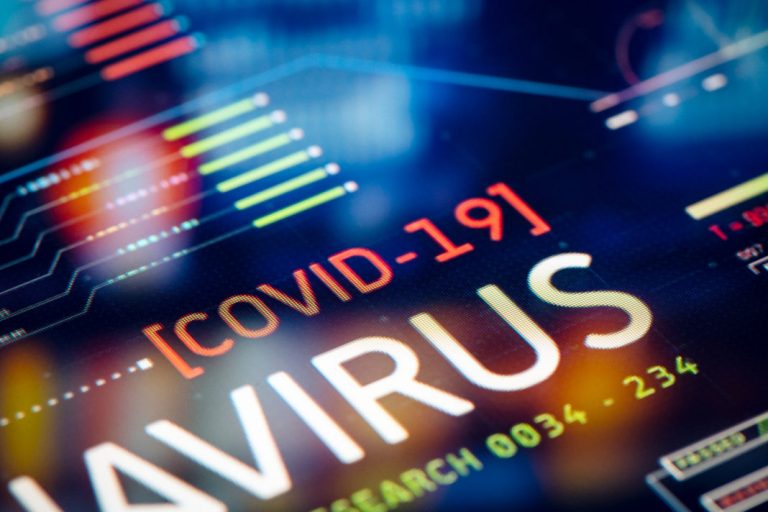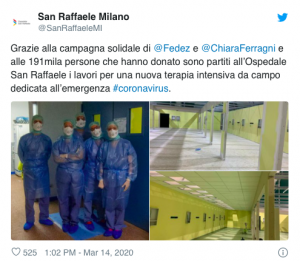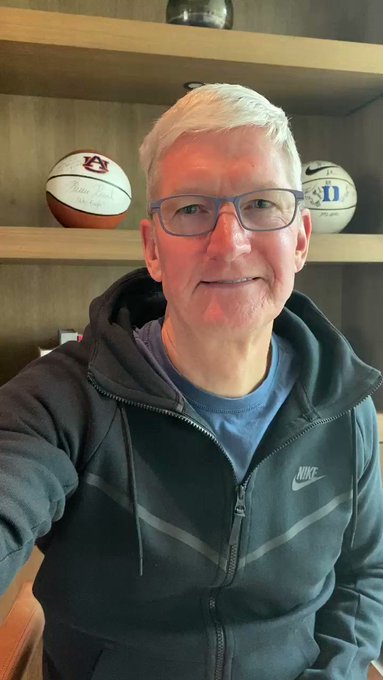Organizations around the world are coming together to minimize the impact on public health and to limit disruptions to economies and supply chains
Here are just some ways corporations and other organizations globally are finding new ways to tackle the pandemic.
Mastercard, Wellcome, Bill & Melinda Gates Foundation launch a COVID-19 Therapeutics Accelerator – scaled up through the COVID Action Platform
A new project on the World Economic Forum’s COVID Action Platform, the COVID-19 Therapeutics Accelerator, is a commitment from Mastercard, The Bill & Melinda Gates Foundation and Wellcome Trust, of up to $125 million in seed funding to speed-up the response to the COVID-19 pandemic by identifying, assessing, developing, and scaling-up treatments.
Mastercard announced the initiative, which will also involve the World Health Organization, governments, and the private sector, as well as global regulatory and policy-setting institutions will evaluate and accelerate new and repurposed drugs and biologics to treat patients with COVID-19.
Currently, there are no broad-spectrum antivirals or immunotherapies available for the fight against emerging pathogens, and none approved for use on COVID-19.

This global challenge not only represents a risk to the health and safety of populations all over the world, but also poses a potential disruption to the economic vitality of millions of people, businesses, and organizations worldwide.
— Mike Froman, Vice Chairman of Mastercard
The Gates Foundation and Wellcome Trust are each contributing up to $50 million, and the Mastercard Impact Fund has committed up to $25 million for the initial work of the accelerator. The project will ensure an end-to-end focus, from drug pipeline development to manufacturing and distribution. The project has already awarded an initial $20 million in grants to three institutions. By sharing research and resources and coordinating investments – this multistakeholder partnership can accelerate research and solutions to COVID-19.
Companies can find out more about the project and how to engage via the World Economic Forum’s COVID Action Platform
Wipro rolls out COVID Response Focused on Humanitarian Aid

Global information technology and business services company Wipro Ltd and Azim Premji Foundation have together committed ₹1125 crore (approximately $147.4 million) towards mitigating the health crisis which has arisen from the COVID-19 pandemic.
The company, which is headquartered in Bangalore, India, pledged to roll out a wide-ranging response to the virus on-the-ground, with a focus on immediate humanitarian aid. The company also specified they are committed to augmenting healthcare capacity and treating those affected by the deadly coronavirus.
“These resources will help enable the dedicated medical and service fraternity in the frontline of the battle against the pandemic and in mitigating its wide-ranging human impact, particularly on the most disadvantaged of our society,” Wipro said in a statement which characterised the COVID-19 pandemic as the most significant threat confronting modern society.
AstraZeneca donates 9 million face masks and announces new collaboration in support of UK effort to boost COVID-19 testing
Following their donation to the COVID Action Platform of 9 million face masks to healthcare workers, AstraZeneca today announced a collaboration with the University of Cambridge to boost testing for COVID-19 in the UK.
The UK government’s national five-pillar plan aims to dramatically increase the number of people tested for COVID-19 – up to 100,000 people per day by the end of the month.
A new laboratory will be set up by AstraZeneca and other partners at the University of Cambridge. The facility will be used to process a high volume of COVID-19 tests and will also investigate the use of alternative chemical reagents for test kits, helping manage supply shortages.

Along with the collaboration to boost testing, AstraZeneca sent the first shipment of donated face masks to Italy in late March. The company is also accelerating the development of its diagnostic testing capabilities to scale-up screening and supplement testing where needed.
Coca-Cola re-deploys resources to make face shields for those on the COVID-19 frontline in North America
Across North America, the Coca-Cola Company is re-deploying its resources to meet the needs of those on the frontline of the COVID-19 fight.
In Boston, the company has provided logistics and supply chain support to a not-for-profit, to help produce face shields for frontline health workers.

More broadly, the Coca-Cola Foundation has awarded $13.5 million in grants to not-for-profit organizations responding to the coronavirus in North America and Canada. The latest grants support economically disadvantaged communities – with one grant enabling 200 food banks to feed vulnerable populations. Other grants are funding childcare for emergency health workers, mental health and counselling, and other emergency aid resources.
We are using the resources of our company and The Coca-Cola Foundation to make a difference by providing much-needed assistance to organizations that are positioned to mobilize quickly and provide essential humanitarian relief.
—James Quincey, Chairman and CEO of The Coca-Cola Company
The Coca-Cola Company has also donated grants globally, namely to China and Italy. The company, like many others, is continuing to monitor the crisis in order to offer additional support as needed.
Top tech firm pledges $225 million in battle against COVID-19

Global technology leader Cisco Systems is committing $225 million to help fight the COVID-19 pandemic.
The funds will support healthcare, education, government responses and relevant technology. Cisco is distributing a portion of this commitment through the United Nations Foundation’s COVID-19 Solidarity Response Fund, which is supporting the World Health Organization’s work on managing the COVID-19 outbreak.
As the global workforce adjusts to working remotely, Cisco technology is securing over 2.2 million people online, including those on the front lines of the crisis. Its video conferencing platform Webex has facilitated virtual meetings for the French, Canadian, German and Colombian governments as they coordinate policy responses to manage the coronavirus crisis.
“Cisco must, and will, do even more to help others respond to this global pandemic,” said Chairman and CEO Chuck Robbins. He has joined over 30 CEOs from various technology companies in Silicon Valley to pledge support for local organizations providing support to vulnerable communities.
‘These vaccines are the exit strategy’ – CEPI calls on business leaders to dedicate funds to solve COVID-19, not just cope
The CEO of the Coalition for Epidemic Preparedness Innovations (CEPI), Richard Hatchett, has called on business leaders to allocate a small proportion of the funds being used to cope with COVID-19 to also help solve the pandemic.
In a high-level COVID Action Platform Virtual Meeting, Hatchett said for businesses the shift in funding would be “the best investment your companies will ever make.”
COVID Action Platform Virtual Meeting
CEPI was launched in 2017 at the Forum’s Annual Meeting. The organization has invested nearly $30 million in eight COVID-19 vaccine projects to date. These included four rapid response programmes and four programmes as a result of a Call for Proposals, which invited funding applications for proven technology that could be used to rapidly develop a vaccine against COVID-19.
There are no guarantees of success, but early estimates suggest that safe and effective vaccines may be available for broader use within the next 12-18 months. With further funding, CEPI would be able to speed up its efforts to develop a vaccine ready for use.
CEPI estimates that it will cost the world collectively $2 billion to advance three vaccine candidates through to large-scale clinical trials. To date, Denmark, Finland, Germany, Norway and the UK have provided around $660 million towards this goal – but more support is crucial.
Funding for ventilators, testing kits, and a new quarantine facility provide free care to COVID-19 patients in India
Infosys, has dedicated INR 100 crore in funding for hospital capacity treatment, ventilators, testing kits and protective gear for frontline health workers to mitigate the impacts of COVID-19 across India.
Infosys Foundation has also partnered with Narayana Health City in Bengaluru to launch a 100-room quarantine facility for COVID-19 patients. The facility will benefit patients in need in the most vulnerable sections of society – with regular monitoring from doctors, nurses and essential medication provided free of charge.
The Foundation is also working to ensure better access to food and nutrition for the underprivileged in India, who are among the hardest hit by the crisis. Twenty-one day food packages currently being distributed include staples like rice, lentils, cooking oil and other essentials.

Infosys Foundation says these are unprecedented times that require every section of society to rise to the challenge. At the time of writing, there are more than 2,000 cases of COVID-19 in India.
50 million meals and local humanitarian support – PepsiCo responds to coronavirus
PepsiCo – a member of the COVID Action Platform – is directing a $45 million COVID-19 response initiative to communities hardest hit by the pandemic. From funding medical needs that include protective gear for health workers, testing and screening services, as well as distributing 50 million meals to at-risk populations, the company is providing essential donations around the globe.

In North America, PepsiCo is increasing access for out-of-school children to food, funding medical services and providing financial support for out-of-work restaurant workers.
In Europe, efforts are centred on the distribution of meals, healthcare equipment and transportation to support the most vulnerable groups in society, while boosting local health and relief systems where countries are in lockdown and hospitals are struggling with capacity.
Meal distribution, strengthening local food bank capabilities and helping to alleviate hunger in vulnerable communities is the focus in Latin America, Africa, the Middle East, Asia and the Pacific Rim.
The Tata Group pledges $200 million for affected communities, free education software and a COVID-19 patient tracker to fight the virus
Tata Consultancy Services, a member of the COVID Action Platform, has pledged funds, offered free education software and harnessed research expertise in the fight against COVID-19.
The larger Tata Group has pledged more than US $200 million to protect and empower affected communities – working closely with the governments in countries where they operate. The funds will provide personal protective equipment for health workers on the frontline, respiratory systems, testing kits, treatment facilities and training for health workers.
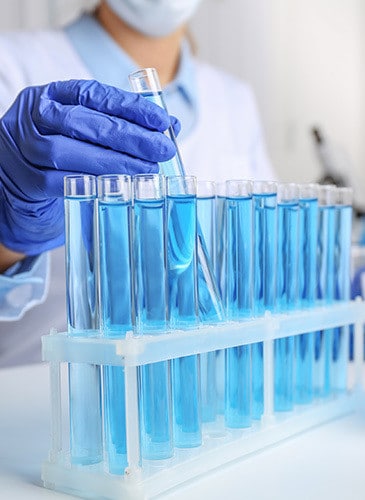
The company has also made their distance learning software platform available for free to educational institutions. The mobile and web platform empowers educators to engage with students in real time – sharing educational materials including videos, assignments and assessments in an interactive way – with even the option to simulate live classroom teaching.
LEGO prioritizes the critical needs of children during the coronavirus crisis
Lego has launched two initiatives to support children around the world during the COVID-19 crisis – from the most vulnerable in refugee camps and war-torn countries, to children experiencing quarantine in urban areas.
The LEGO Foundation will donate US $50 million to ensure children, particularly those most affected by the COVID-19 crisis, continue to have access to learning through play. They will reach children in emergency situations with essential supplies, ensuring education and play across communities most in need.

The second initiative is a new website which encourages families worldwide to connect to play-based learning across social media. The hope is that families and children can connect online via their free site to share creativity and play ideas, learn from LEGO designers and help children to continue building life-long skills such as problem solving, critical thinking and developing new forms of fun while away from school. The initiative also aims to alleviate stress on parents during this unprecedented event.
UNESCO reports most governments around the world have temporarily closed education institutions – affecting more than 80% of the world’s school population.
Campari Produce Alcohol-Based Sanitizer for Hospitals
Drinks group Campari and cosmetic products maker Intercos Group have joined forces to produce hydro-alcoholic gel hand cleaners to be donated to healthcare workers in Italy’s region of Lombardy.
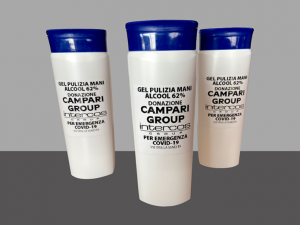
Lombardy, where Campari has its headquarters, has suffered the worst impact in the whole country from the coronavirus outbreak, with over 9.000 fatalities to date.
Italy accounts for just under 30% of the over 46,900 global deaths from the highly infectious respiratory illness.
The alcohol donated by Campari has been transformed and bottled by Intercos Group, the two groups said in a statement, adding they will deliver the gel sanitizers where they are most urgently needed.
“Aware of sanitizing gel shortage in hospitals and in all sanitary facilities, we have decided to donate an amount of pure alcohol, originally intended for our production lines,” Campari Chief Executive Bob Kunze-Concewitz said.
Production has started and the first batch will count fifteen thousand hand sanitizer bottles.
In recent weeks, Campari donated one million euros ($1.09 million) to a hospital in Lombardy and has made available $1 million to Another Round Another Rally, a non-profit organisation that raises emergency funds for hospitality workers in the United States.
Prada and the latest fashion brands to make medical face masks and overalls
From hospitals to hand sanitiser, a number of big names from continental fashion capitals are turning their efforts towards the fight against the coronavirus. Will the British industry follow suit?
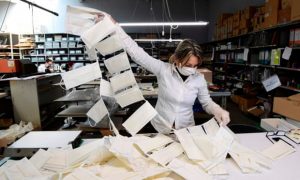
Prada is the latest big-name fashion brand to turn its production lines, usually focused on elegant blazers and blouses, to meet needs arising from the coronavirus crisis. Yesterday it said it would produce 110,000 masks by 6 April, while Gucci has said it will make more than 1m and Yves Saint Laurent and Balenciaga – both of which, like Gucci, are owned by Kering – will also begin manufacturing them.
High-street brands are similarly shifting their focus. Last week, Spanish-owned Zara pledged to produce surgical masks, saying it had already donated 10,000 masks and a further 300,000 were due to be sent by the end of this week. Over the weekend, H&M Group said it would be rearranging its supply chain to produce protective equipment for hospitals and healthcare workers.
The luxury conglomerate LVMH, which owns Dior, Fendi, Louis Vuitton and Givenchy, announced last weekend that it would be supplying the French authorities with more than 40m face masks in the coming weeks, having agreed an order from a Chinese manufacturer. Kering has also said it will be purchasing 3m surgical masks from China to donate to the French health service, while Mango has announced it will distribute 2m donated face masks to Spanish hospitals.
In France, at least, the numbers of masks supplied are more than a drop in the ocean, with the 43m promised by LVMH and Kering sitting favourably alongside the 250m-strong order announced by the French government.
It is hoped that brands might soon follow suit in the UK, with the British Fashion Council the not-for-profit organisation that promotes British design globally, last week asking those with “production capacity” to help with shortages. NHS workers in the UK have been speaking out against shortages of protective gear, with London paramedics being rationed to one face mask between two, despite the under-fire UK health secretary Matt Hancock saying yesterday that he had ordered “millions of masks”.
Last but not least, fashion group Armanihas announced that all its Italian production plants would start producing single-use medical overalls, in an effort to support healthcare workers in the coronavirus crisis.
The fashion house, run by designer Giorgio Armani, added it had increased to 2 million euros ($2.20 million), from an initial 1.25 million euros, the funds it donated to Italian hospitals to help them face the virus emergency.
In the US, some smaller brands are popping up to help: Christian Siriano and the kooky sustainable brand Collina Strada are making masks for doctors in New York. The outdoor retailer LL Bean has responded to calls for manufacturing help of masks in Maine“.
The move to make masks follows on from LVMH’s announcement, earlier this month, that it would convert three of its factories, which usually manufacture perfumes under labels such as Givenchy and Guerlain, to the production of hand sanitiser.
Meanwhile, in Italy, other big fashion names have been donating big money. Moncler announced €10m (£9.2m) towards the construction of a 200-25-bed hospital in Milan, according to regional officials.
Also in Milan, two new intensive care units have been donated by Prada co-CEOs Patrizio Bertelli and Miuccia Prada, as well as chairman Carlo Mazzi, at each of the city’s biggest three hospitals. With one unit equating to one bed, according to the Prada press office, the donation marks a 1.2% increase on Lombardy’s pre-corona total of 500 public intensive care beds – a figure that has since rocketed to over 900. With more than 3,000 deaths in the region already, however, many more may well be needed. Earlier in the crisis, in mid-February, Dolce & Gabbana announced it was funding a study into coronavirus and immunity at Humanitas University in Milan.
Donatella Versace last week pledged more than $200,000 to the intensive care unit of Milan’s San Raffaele hospital; Mayhoola, the parent company of Valentino and Balmain, yesterday pledged $2m to the coronavirus effort; Giorgio Armani donated $1.4m to four of Italy’s busiest hospitals and the chief executive of Gucci, Marco Bizzarri, gave $100,000 to hospitals in the northern Italian region of Emilia-Romagna, another of the hardest hit areas of the country. Money from a crowd-funding project promoted by the fashion influencer Chiara Ferragni brought in more than €4m for a new intensive care ward Milan’s San Raffaele hospital.

So far, in the UK, altruistic fashion initiatives have been on a much smaller scale, with social enterprises launching T-shirts emblazoned with slogans from “Just Do It” to raise money for the food bank network Trussell Trust, to “National Hero Service” to raise money for the NHS. The London-based sustainable designer Phoebe English announced last week that she would be making face masks for medical professionals. While stores are shut, the shoe brand Kurt Geiger is asking its 2,500 staff to volunteer in local communities and has partnered with Age UK to help – all staff, apart from the company’s CEO, will continue to be paid.
$800 million commitment from Google helps WHO, governments, small-to-mid sized businesses and frontline health workers
Google has stepped up its response to the coronavirus pandemic, pledging a total of $800 million to support small- and medium-sized businesses, governments, health organizations and health workers fighting COVID-19.
After announcing an initial $25 million in advertising grants last month, the company has now increased its grant commitment to $250 million – specifically for the World Health Organization (WHO) and more than 100 government agencies globally to provide critical information on how to prevent the spread of COVID-19.
We’re committing $800M+ in new #COVID19 response efforts, incl $340M in @GoogleAds credits for SMBs worldwide, $250M in ad grants for @WHO & 100+ govt orgs globally, a $200M investment fund for NGOs & banks to help small businesses access capital, and more https://blog.google/inside-google/company-announcements/commitment-support-small-businesses-and-crisis-response-covid-19 …
As part of their total commitment, $20 million in advertising grants will be given to community financial institutions and NGOs to run public service announcements and provide other resources for small-to-medium-sized businesses. Another initiative is a $200 million investment fund, which will support NGOs and banks worldwide to give small businesses access to capital.
Google has also created a website dedicated to COVID-19 help and resources – ensuring safety and prevention tips reach people in need. The company says coronavirus is taking a devastating toll on lives and communities. Its commitment will help address some of the challenges globally.
Novo Nordisk Foundation funds scientific, social and health outreach grants to mitigate the effects of coronavirus in Denmark
The Novo Nordisk Foundation is funding DKK 50 million in grants for scientific, social and health outreach projects to manage the impact of COVID-19 in Denmark.
Novo Nordisk Foundation has taken the innovative approach to support national projects that are publicly accessible and able to be initiated immediately. Knowledge from the projects can then be used in similar situations in the future.
Applications are being considered across three grant areas – scientific projects that test new treatments, techniques and technologies; outreach initiatives that assist with communication about the health crisis to the public; and social initiatives that support particularly vulnerable people affected by COVID-19.

A number of grants have already been awarded to projects including an information campaign aimed at ethnic minorities living in Denmark and one that applies Artificial Intelligence to conduct real-time risk assessment of patients with COVID-19.
The initiative follows an announcement from the organization earlier in March that it would invest millions into research and development to prepare Denmark for future viral epidemics. The interest in the grants shows demand for organizations globally to broaden their innovation in support and response to COVID-19.
Millions of face masks donated to the frontline in the US and Europe
Tim Cook, Chief Executive Officer of Apple has announced this week that the company has sourced, procured and is donating 10 million masks to the medical community in the United States, and millions more for the European regions hit hardest by the COVID-19 pandemic.
Along with frontline health employees, Apple has recognized and thanked essential workers across the supply chain – from warehouse and delivery workers to those stocking supermarket shelves – for their tireless efforts to deliver vital services in the face of COVID-19.
Other major tech companies globally have also pledged to donate face masks as a frontline defence against coronavirus. It is one example of how organizations are mobilizing cooperation and business support for the COVID-19 response.
HP CEO calls on companies and business leaders to step up their response to COVID-19
After HP committed to donating millions of dollars in technology and support to help students, families, and communities, President and CEO Enrique Lores issued a call-to-action to companies and business leaders globally to step forward and play a more significant role in overcoming obstacles during the coronavirus crisis, creating opportunities for the future.
It’s incumbent on business leaders everywhere to commit to supporting employees at every level of their organization in the unpredictable weeks and months ahead.
— Enrique Lores, President & CEO, HP Inc.
Along with the support for employees, HP Inc is designing and producing essential parts for medical responders and hospitals, thanks to its 3D Printing team and Digital Manufacturing Partner Network.
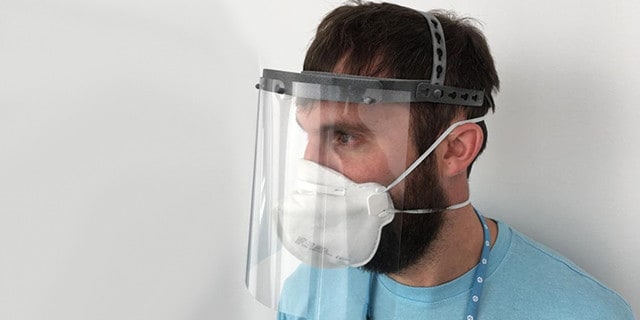
If companies are struggling to know where to begin in harnessing their efforts to respond to the crisis – they are invited join the Forum’s COVID Action Platform, to connect with other businesses, governments and civil society to respond to the world’s greatest needs during the spread of COVID-19.
source: WEF, Guardian, Corriere della Sera
Maker Faire Rome – The European Edition has been committed since eight editions to make innovation accessible and usable to all, with the aim of not leaving anyone behind. Its blog is always updated and full of opportunities and inspiration for makers, makers, startups, SMEs and all the curious ones who wish to enrich their knowledge and expand their business, in Italy and abroad.Follow us, subscribe to our newsletter: we promise to let just the right content for you to reach your inbox


